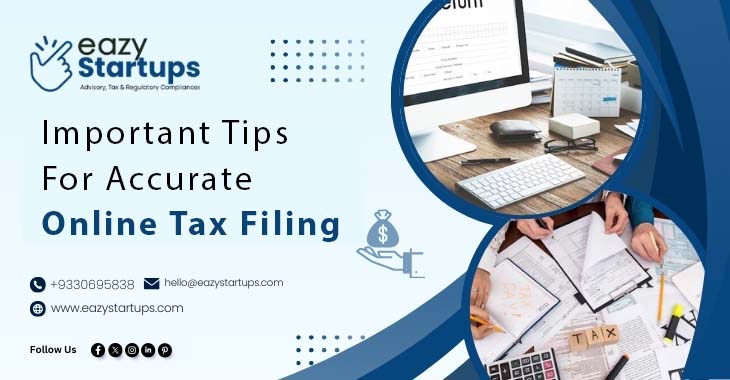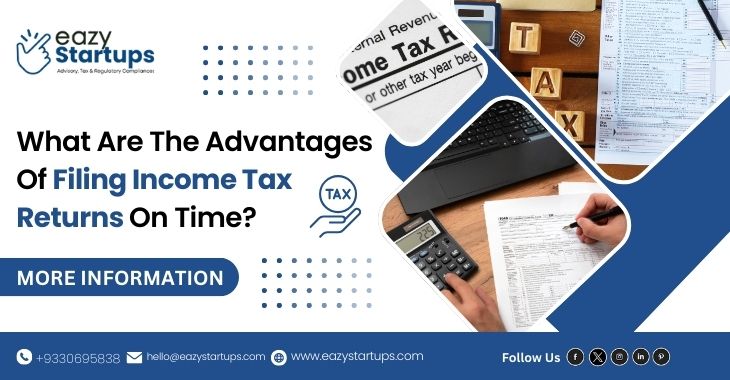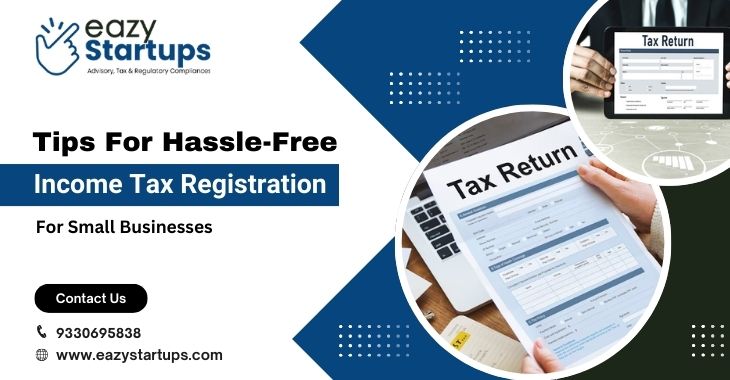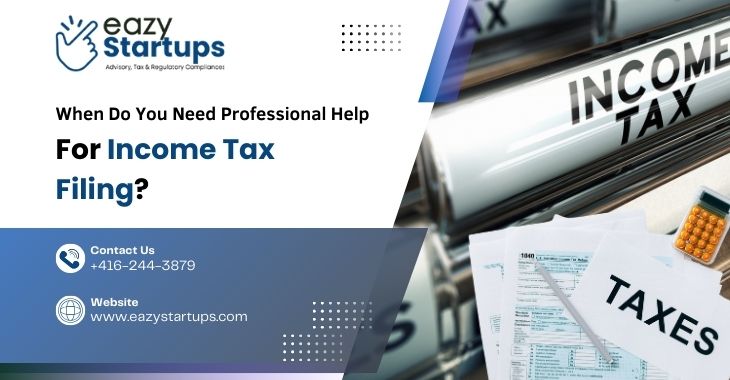You can save time and effort by filing your income taxes online, but accuracy is essential for the process to go well. Following the correct procedures is crucial because errors can result in fines or delays. These seven crucial pointers will help you promptly and effectively submit your taxes. If you are looking for a company that can guide you through online income tax filing in India, then Eazy Startups is the best place for you.
Let’s dive into the discussion:-
1. Keep all required paperwork close to hand.
2. Verify Personal Information
3. List Every Source of Income
4. Claim Deductions and Exemptions
5. Steer clear of last-minute filing
6. Choose the Correct Tax Regime
7. Finish the Verification Procedure
8 . Additional Suggestions for Seamless Filing
Keep all required paperwork close to hand:
Before beginning the filing procedure, obtain all necessary paperwork, including bank statements, investment proofs, Form 16, and Form 26AS. Missing documentation may result in incomplete or inaccurate returns.
Why It Matters: Keeping all your documents in one location makes filing easier and reduces the possibility of mistakes.
Verify Personal Information:
Your name, PAN, and bank account information are examples of personal information that must match official records. If this information is inaccurate, returns may be denied, or reimbursements may be delayed.
How to Make Sure It’s Accurate: Before submitting, ensure these facts match your bank records, Aadhaar, and PAN card.
List Every Source of Income:
Underreporting may result from failing to include income from savings accounts, fixed deposits, rental properties, or freelancing. The tax authorities might look into this.
Best Practice: Use Form 26AS, which lists revenue reported by banks, employers, and other organizations, to cross-check all sources of income.
Claim Deductions and Exemptions:
Make sure you take advantage of all the deductions that are available under sections such as 10(14) (allowances), 80D (health insurance), and 80C (investments). Many taxpayers fail to take advantage of these advantages, which raises their tax obligations.
Pro Tip: Make a list of all the deductions that apply and have supporting documentation on hand, such as rent receipts, insurance premiums, or donation certificates.
Steer clear of last-minute filing:
When filing at the last minute, there is a greater likelihood of errors and technological problems. It might also be difficult to fix last-minute mistakes.
How to Stay Ahead: Start early to give yourself enough time for careful inspections and adjustments. Filing early also gives you a head start on refunds.
Choose the Correct Tax Regime:
Taxpayers now have a choice between the previous tax regime, which had deductions, and the new one, which has lower rates but no deductions. Selecting the incorrect regime could result in paying more taxes than required.
What to Do: Choose the regime that will reduce your tax burden by comparing the two depending on your income and allowable deductions.
Finish the Verification Procedure:
Your tax return is not finished until it is validated. Failing to verify your return may result in penalties, which could make your file void.
Quick Verification Tips: Digital signatures, net banking, and Aadhaar OTP are a few ways to e-verify. Alternatively, deliver a signed hard copy of the ITR-V to the Income Tax Department before the deadline.
Additional Suggestions for Seamless Filing:
Use Trusted Platforms: Choose government-approved portals or reliable third-party platforms for filing.
Save Your Work Frequently: Avoid data loss by saving your progress regularly.
Seek Expert Advice: Consult a tax professional if you’re unsure about tax laws or deductions.
Conclusion
Precision and readiness go hand in hand with accurate online tax filing. By adhering to these seven suggestions, you can reduce mistakes, optimize gains, and have a stress-free tax season. You may be confident that your compliance will save you time, money, and possible legal issues if you take the time to carefully study your return before filing. Accurately filing your taxes now will guarantee financial stability tomorrow. If you are looking for a company to guide you through online income tax filing in India, contact Eazy Startups.











Recent Comments